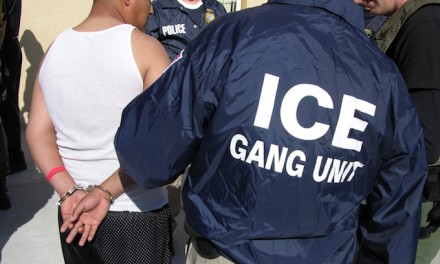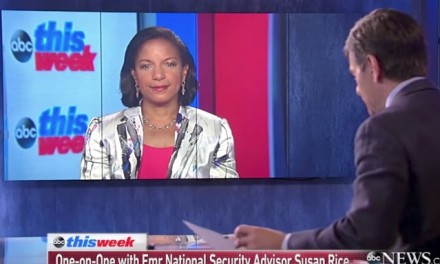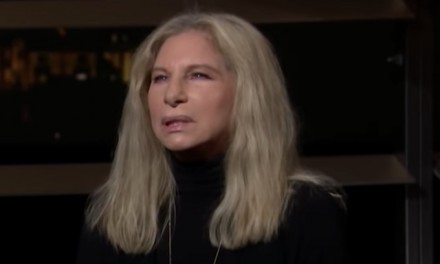Parents brawl at a 7-year-olds’ baseball game in Colorado. A mother kicks a soccer ball at a referee out of anger. A wrestling coach picks up one of his youth wrestlers by the neck and tosses him to the ground.
Researchers say the bad sportsmanship, rude behavior and outright violence adults display at youth sporting events has become a national epidemic that sends the wrong message to child athletes and drives referees from playing fields in droves.
In an age when one-sport specialization and thousand-dollar travel tournaments are the norm for many families, success in the game has become such a priority that some parents turn “rabid,” said Barry Mano, president of the National Association of Sports Officials.
“I’d characterize youth sports as sort of the perfect storm where you have the least skillful players and the least skillful coaches and the least skillful referees and almost nonexistent security, and then you have the most rabid fans in all forms,” he said. “And that can be a toxic mix.”
Chasing away referees
A youth baseball brawl in Lakewood, Colorado, last month that went viral on social media is one of the latest examples of bad behavior. The fight broke out when some fans disagreed with a call made by the home-plate umpire, who was just 13. Since then, 12 people, 11 of them adults, have been cited and fined for disorderly conduct.
But not all incidents of misbehavior make headlines, and not everyone is punished. Lauren Ritter knows from experience.
Ms. Ritter, 20, is in her first year as a coach in the Prince-Mont Swim League, a summer league in Prince George’s and Montgomery counties in Maryland, where she said it’s common to see adults cross the line.
Parents get in her face from time to time to argue about which events she is having their child swim. But growing up around the pool, Ms. Ritter has seen even more aggressive moments, including the time a grandmother pushed a swimmer into the pool before a race started and then screamed at a coach when the swimmer was disqualified.
“I don’t think the league has something set up that’s like, ‘You can’t push people in.’ It’s just one of those things that shouldn’t have to be said, and then it happens,” Ms. Ritter said.
Russel Schoppe, who has coached youth sports in Texas for 25 years, had one of his worst encounters with parents while umpiring a T-ball game for 5-year-olds. After a boy was caught running the bases the wrong way and tagged out, a dad threatened to meet Mr. Schoppe in the parking lot after the game unless he called interference on the other team.
“He was yelling and using words that kids of that age shouldn’t hear or even know,” Mr. Schoppe said.
Ben Goodyear has seen his share, too, as president of the Cincinnati Premier Youth Basketball League. In January, he reviewed tape of two parents throwing punches at a game between fourth-grade squads. The adults were arrested and expelled from the league, along with their children, for the remainder of the season.
Mr. Goodyear said the problem has grown worse over the years. While parents sometimes fight one another, they also frequently turn on referees and officials, causing a referee shortage. The state of Ohio has lost hundreds of referees in the past three years because of abuse, Mr. Goodyear said.
The National Association of Sports Officials said more than 70% of referees across all sports are quitting within three years. For high school officials, the rate is 80%, according to the National Federation of State High School Associations.
Referees at the youth and high school level are often young themselves, including Josh Cordova, the 13-year-old umpire at the Colorado game. The gig usually pays less than $50 a game.
Mr. Mano said unruly parents are interfering with what could be life lessons for their children.
“They just can’t accept a decision going against either their team generally or against their child who’s playing, when it’s supposed to be a learning mechanism that once in a while in life, you’re going to get a ‘no’ that’s unfair,” he said.
Calling out ‘offside’ parents
Brian Barlow launched the Facebook page Offside, which he intended to be a satirical place to mock the worst archetypes of people he encountered at youth sporting events. Mr. Barlow is a father and a college and semi-professional soccer referee in Oklahoma.
His posts often featured parent-referee encounters, but then a friend sent him a video of a mother at a youth game kicking a soccer ball at a referee. The friend asked Mr. Barlow to promote the clip to use as an example of behavior that shouldn’t be tolerated.
Once Offside helped the clip go viral, an idea was born: Mr. Barlow would offer $100 to anyone who sent him footage of a parent behaving badly at a youth game, and he would post the video to Offside to publicly call out the behavior. The enterprise has since exploded.
Mr. Barlow sees parents living vicariously through their children as a core part of the problem.
“Everybody wants the video of little Soccer Sammy or Soccer Sally holding up the trophy at the end of the day or at the end of the weekend to validate us as parents,” Mr. Barlow said. “And when that doesn’t happen, we lose our marbles.”
Steven J. Overman, a retired college professor who has written six books including “The Youth Sports Crisis: Out-of-Control Adults, Helpless Kids,” blames the problem in part on helicopter parenting.
“They don’t just let their kids walk over to the ballpark and play a Little League game,” Mr. Overman said. “I don’t know if it’s heightened risk aversion or what it is, but we’re seeing parents that are more involved in kids’ lives now.”
Mr. Barlow said he thinks 98% of parents act appropriately and the other 2% are the problem — people who often seem to be out of shape, reclining on the sidelines with a cheeseburger and a soda, he said. That was how he got the idea to call the offenders “cheeseburgers,” a term that works well for publicly shaming people without promoting vulgar language on the Facebook page.
Mr. Barlow found one video too graphic to share. In March, a youth wrestling coach in Pennsylvania named Eric Angle was caught picking up one of his team members by the neck, choking him and dropping him back to the mat. Mr. Angle was arrested and charged with simple assault.
Coaches have been the ones to become violent in other cases. At a baseball tournament in Indianapolis last year, a coach charged at a parent in the stands with an aluminum bat and was later fired.
But it’s parents on the sidelines who most often cause the problems, referees say, and Mr. Barlow hopes to help stop the trend.
“If you want to make a statement that people will follow, then sometimes it has to be bold and it has to be uncomfortable,” he said.
Looking for solutions
For Mr. Barlow, the solution can be summed up in one word: accountability.
“For the time that you step foot here to the time that you step foot off, this is the behavior expectation,” Mr. Barlow said. “And if you do not, remember it’s not a right; it is a privilege to get to watch your child. Just because you cut the check, just because you’re the parent, that does not give you the right to see them and watch them. … So I tell people it’s all about setting an expectation, and the most important is holding people accountable when times get tough.”
He said leagues sometimes shy away from enforcing rules out of fear of losing families’ registration money.
Not everyone agrees that parents who pay their children’s way into sports leagues don’t have the right to attend games, but one tactic gaining traction is to have parents promise sportsmanlike behavior in writing. More leagues are resorting to having parents sign a code of conduct before they can attend games, Mr. Overman said.
Mr. Goodyear, though, said written regulations will not solve the entire problem. “I think you can write all the rules in the world but it’s not enough to change mindsets,” he said.
At scholastic games and events, administrators are sometimes assigned to keep order. Elsewhere, police officers or other uniformed security can be present. Multiple people interviewed for this article said they have seen officers intervene when parents become unruly.
Mr. Goodyear said such security is not the best solution for all age levels.
“I think optically, that would be scary for a third-grade girl or a second-grade boy or whatever age, to go into a gym and there’s a police there,” he said. “And then, God forbid, you take it a step further and an incident happens and now the police is engaged in the stands arresting people at a third-grade game.”
But Justin Harrison, an associate executive director for the Florida High School Athletics Association, said prevention is the key to stopping the cycle.
“We don’t want [youth athletes] growing up in 15 to 20 years, 25 years, when they have children of their own that are students,” Mr. Harrison said, “we don’t want them to do kind of what’s happening out there, that it’s OK and accepted to scream out obscenities like, ‘I paid my ticket; I’m allowed to say what I want.'”
© Copyright (c) 2019 News World Communications, Inc.
—-
This content is published through a licensing agreement with Acquire Media using its NewsEdge technology.



















Recent Comments